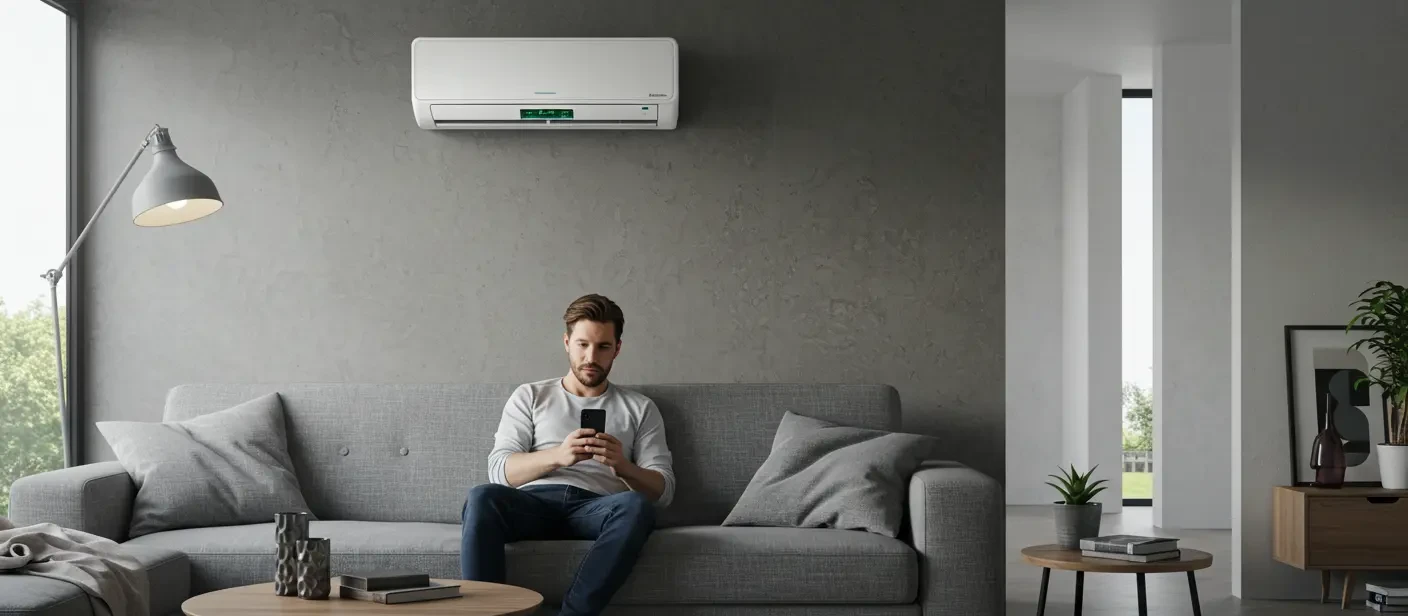
Is Air Conditioner Good For Asthma?
Yes, air conditioners can help asthma sufferers by improving air quality and reducing triggers. But there are some things to keep in mind to make sure your AC is actually helping and not hurting.
Air conditioners can be a game-changer for people with asthma. They cool the air, lower humidity, and filter out allergens like pollen or dust.
But not all AC units are created equal, and poor maintenance can make things worse. Understanding how to use your air conditioner properly can help you breathe easier and live more comfortably.
How Air Conditioners Help Asthma
Air conditioners can create a better environment for asthma sufferers. Here’s how they make a difference:
- Reduce Allergens: AC units filter out pollen, dust, and pet dander, which are common asthma triggers.
- Lower Humidity: High humidity can promote mold and dust mites. ACs keep humidity in check, reducing these risks.
- Cooler Air: Hot, stuffy air can worsen asthma symptoms. Cool air from an AC can make breathing easier.
- Improve Air Quality: Many ACs have filters that trap particles, providing cleaner air for your lungs.
- Control Outdoor Triggers: By keeping windows closed, ACs prevent outdoor allergens from sneaking inside.
However, a poorly maintained AC can trap allergens or spread mold, so regular upkeep is key.
Things to Watch Out For
While air conditioners can help, there are some potential downsides if you’re not careful:
- Dirty Filters: Clogged filters can harbor dust and allergens, worsening asthma symptoms.
- Mold Growth: AC units can collect moisture, leading to mold if not cleaned regularly.
- Dry Air: Overly dry air from constant AC use might irritate airways for some people.
- Cold Air Sensitivity: Very cold air can trigger asthma in some individuals, so adjust temperatures carefully.
To avoid these issues, maintain your AC properly and monitor how your body responds.
Tips for Using Air Conditioners with Asthma
To make your air conditioner asthma-friendly, follow these simple steps:
- Clean Filters Regularly: Replace or clean AC filters every 1–3 months to keep air clean.
- Use HEPA Filters: If possible, choose an AC with a HEPA filter for better allergen removal.
- Control Humidity: Aim for indoor humidity between 30–50% to prevent mold and dust mites.
- Schedule Maintenance: Have your AC unit serviced annually to avoid mold or dust buildup.
- Monitor Symptoms: If the AC air feels too cold or dry, adjust settings or use a humidifier.
When to See a Specialist
While air conditioners can help manage asthma, they’re not a cure. For personalized asthma care, seeing an asthma specialist is Dr. Reshamwala, a board-certified allergy, asthma, and immunology specialist in Austin since 2012, who offers expert care to help you manage your condition. Her passion is helping patients live healthier, more comfortable lives.

Written/Reviewed by: Dr. Neha Reshamwala
NPI number: 1780874578
Page last reviewed: 08/11/2025


 All blog posts
All blog posts





